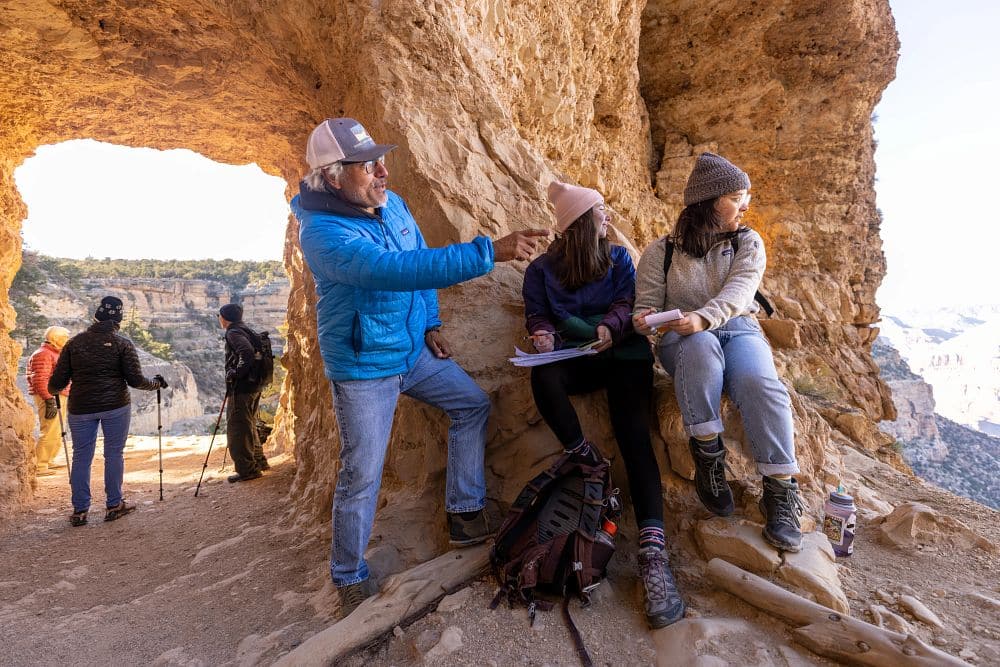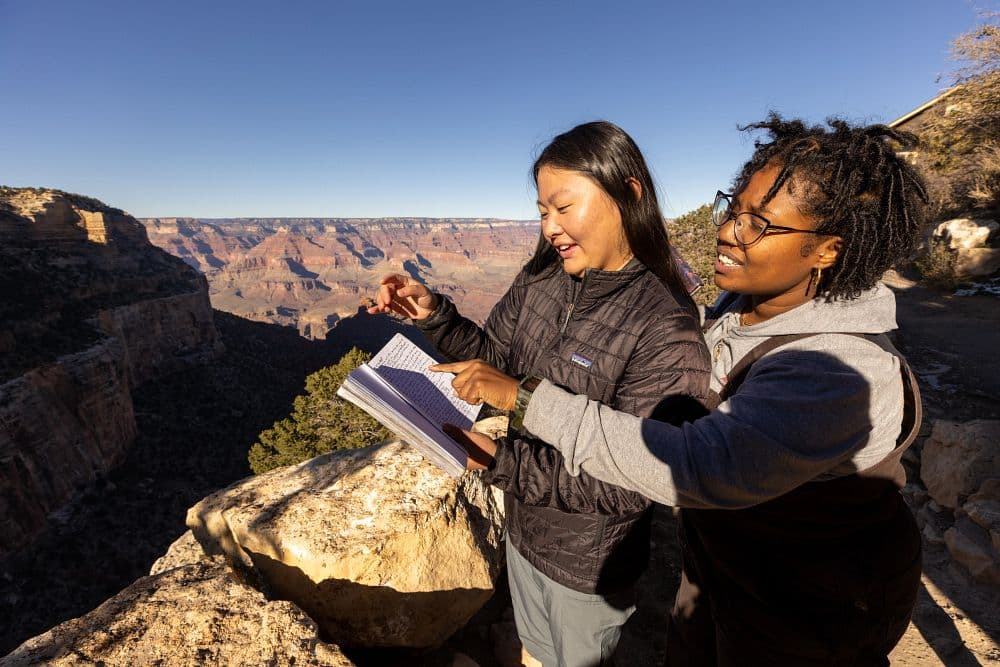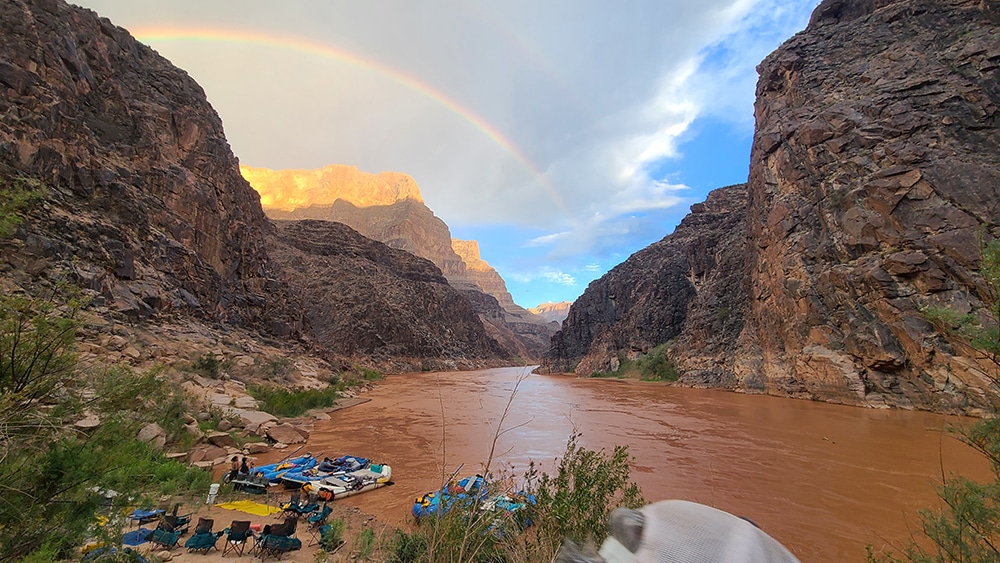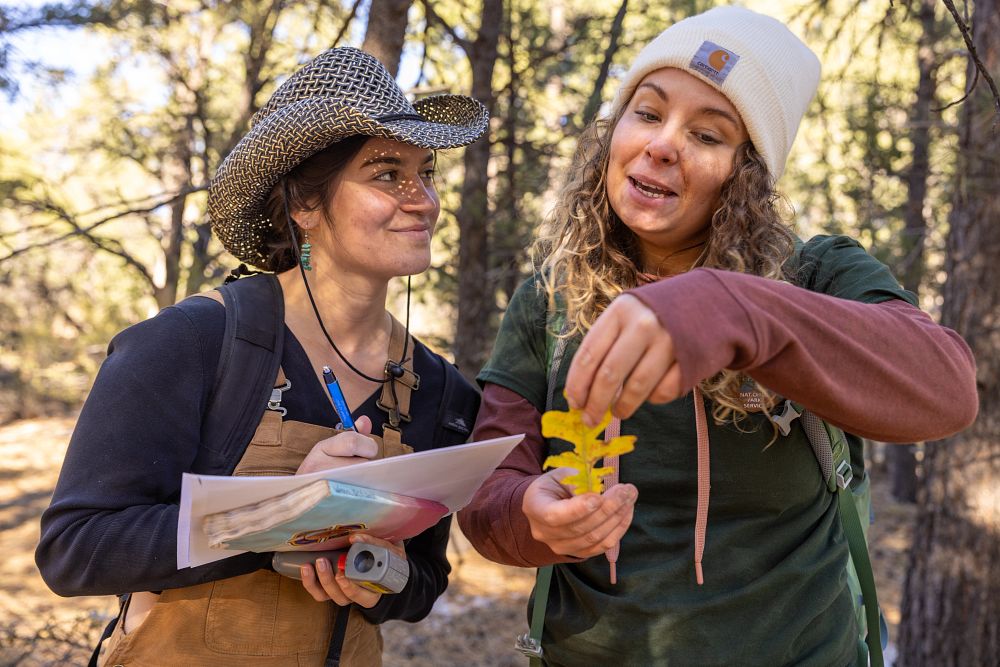Imagine that your classroom was the mighty Colorado River, roaring over rocks as it wends through the towering cliffs of the Grand Canyon. Your course goals include learning to solve problems, to trust yourself, to have an experience that prepares you for whatever life you’re going to live when you leave NAU. Your group projects aren’t papers but hauling kayaks, water, food and medical supplies into and out of the canyon, setting up camp and making sure the person next to you is keeping up.
NAU students have a unique opportunity to take that very class, and the deadline to apply is coming up fast.
The Grand Canyon Semester (GCS), part of the Honors College, is entering its 46th year of offering students an educational opportunity not available outside of the Colorado Plateau. It’s a 15-week program made up of five courses in the fall semester that includes lessons on geology, biology, recreation, tourism, the Indigenous residents of the region, art and the spiritual beliefs centered on the canyon.

“Students with a wide variety of interests and passions come from across the United States and around the world to join faculty in the natural sciences, social sciences, arts and humanities to investigate how humans impact, manage, interact with and value the natural world,” said Honors College teaching professor Ted Martinez, the academic director for GCS. “On backcountry field trips, in classrooms and art galleries, around campfires, in traditional hogans and floating down the Colorado River through the Grand Canyon, we confront key environmental and social challenges in these diverse natural and cultural landscapes.”
Business student Sara Wilson is one of the program alums putting her experience to good use, although in her case, it’s directly related; she’s a GCS program assistant this year. GCS was what brought her to NAU, and she’s put those lessons to use in many of her classes since.
“It taught me so much about the area that we live in: the environmental issues specific to the Colorado Plateau, the tribes that call this area home and the biology and ecology of Arizona,” she said. “In class, I can relate my course materials to the Flagstaff area and better understand environmental issues that are brought up in discussions or examples.”

Who can apply?
GCS is open to undergraduate students of all majors with a focus on students in the Honors College and those who are honors-eligible. Because the program is academically rigorous, including writing, research and interdisciplinary work, students not in the Honors College should submit an extra letter of recommendation speaking to their ability to keep up with the class.
How will this class help in my career? 
A 2018 alum did GCS before becoming a physician assistant because she wanted firsthand experience with the conditions of rural medicine. A 2016 alum is now an artisan breadmaker in Tucson—a scary step forward if she didn’t trust her own instincts. GCS students go onto careers in science, sustainability, art, education, law and so much more. Many say the experience helped them learn to think critically, to find solutions to thorny problems, to work together and more.
“I want participants to raft the Colorado River and backpack the Grand Canyon and learn to trust themselves and their instincts,” Martinez said.
What about networking?
Students build relationships with each other, but it’s much more than that; experts from the Grand Canyon Trust, Sierra Club, National Parks Service and many other organizations were guest presenters in the program, and Wilson, who would like to work for a sustainability-focused nonprofit, saw her career unfolding in the work of these experts.
I want in! How do I apply?
Learn more and apply at the Grand Canyon Semester website.
Heidi Toth | NAU Communications
(928) 523-8737 | heidi.toth@nau.edu





